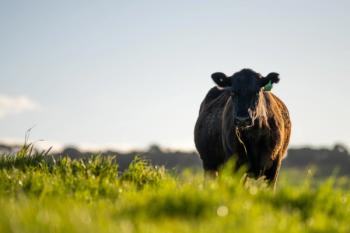
The role of food frequency questionnaires in veterinary research and beyond
Janice O’Brien, DVM, MPH, DACVMP, discusses her research in dog nutrition in this interview with dvm360 at the 2025 ACVIM Forum.
At the 2025 American College of Veterinary Internal Medicine (ACVIM) Forum in Louisville, Kentucky, dvm360 interviewed
In this video, O’Brien, talks about the value of validating tools like FFQs for veterinary research and clinical practice. Additionally, she shares details about another ongoing study focused on assessing owners’ accuracy in reporting grain-free diets, which could also have important implications for understanding health outcomes in dogs.
Below is the transcript of the interview:
Janice O’Brien, DVM, MPH, DACVMP: I think it's very important, just in general, to validate whatever tools you're using to do research—that's just good science. But it's good to know because the Dog Aging Project wants to do these very long-term studies of different, not just diet exposures, I mean, they're doing it for lots of different things, but on the diet side, we want to know well, ‘How good is our survey at capturing this data? So, what sort of research questions can we ask?’
So, for example, it probably is perfectly fine to do longitudinal studies using the primary diet component, whatever questions those might entail. You know, maybe total calories consumed that [are] coming from a primary diet—all of those are probably going to be pretty accurate in terms of the outcomes that you measure versus doing something with, for example, dairy. If you wanted to do groups of dogs that reportedly consumed dairy versus didn't, that's probably going to be less accurate because we found that that was extremely not accurate on the survey versus the real world.
Using the food frequency questionnaire data is going to be a huge follow up. So, using the data that was collected with it to do those sorts of studies to say, ‘Okay, well, we know that dogs that might be consuming one type of diet versus another, and what are the differences in their health outcomes?’ Those are, those are huge studies that we're excited about doing.
Are there any other projects you’re currently working on?
We're doing, like a reporting accuracy of grain free diets. And so that one's also really exciting to me, just the ‘How accurate are owners at reporting whether their dog is on a grain free diet or not?’ and how that impacts whatever findings you're trying to look at, whether that's cardiac outcomes or skin outcomes, whatever that might be.
This transcript was lightly edited for improved clarity.
Newsletter
From exam room tips to practice management insights, get trusted veterinary news delivered straight to your inbox—subscribe to dvm360.





